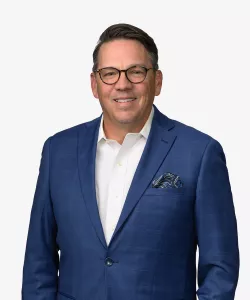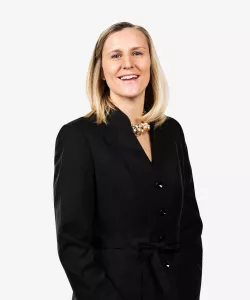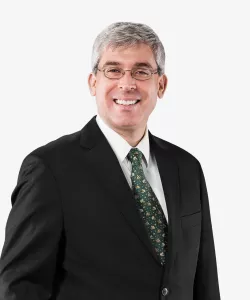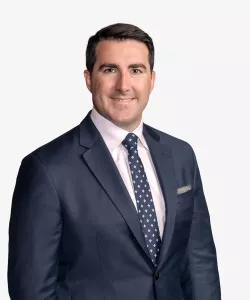Asset Management Company to Pay $3.6 Million to Resolve False Claims Act Allegations
Headlines that Matter for Companies and Executives in Regulated Industries
DOJ & Litigation News
Rialto Capital Management to Pay $3.6 Million to Resolve False Claims Act Allegations
The Department of Justice (“DOJ”) recently announced that Rialto Capital Management LLC (“Rialto”) and its former affiliate RL BB-IN KRE LLC (“RL BB”) have agreed to pay $3.6 million to resolve allegations that Rialto and the Kentuckian Medical Center (“KMC”), an Indiana-based hospital owned by RL BB, violated the Anti-Kickback Statute, the Stark Law, and the False Claims Act.
The settlement resolves allegations that KMC, under Rialto’s direction, provided personal loans to two referring doctors and then did not require the doctors to repay these loans for more than two years after each loan matured and became due in full. The DOJ alleged that the hospital’s failure to collect on the loans to these key referral sources amounted to a form of remuneration prohibited by the Anti-Kickback Statute (which prohibits the provision of remuneration to induce the referral of services or items that are paid for by a federal health care program) and the Stark Law (which restricts the financial relationships that hospitals can enter into with referring physicians). The False Claims Act prohibits the submission of claims to Medicare for items or services that are tainted by financial arrangements that violate the Anti-Kickback Statute and the Stark Law.
The settlement also resolves a lawsuit filed by Dr. Abdul Buridi under the qui tam provisions of the False Claims Act. In his Complaint, Dr. Burudi alleged that KMC provided kickbacks to four referring physicians for the purpose of inducing referrals. Dr. Buridi will receive $612,000 from the settlement.
The DOJ press release is here.
Supreme Court Denies Appeal of Insider Trading Conviction
On June 3, 2019, the United States Supreme Court denied a petition to review the case of Matthew Martoma, a former SAC Capital Advisors LP portfolio manager. Martoma asked the Supreme Court to examine the Second Circuit Court of Appeals’ decision to uphold his 2014 conviction for trading on insider information related to clinical trials, based on his argument that the conviction broke from the Supreme Court’s holding that a personal benefit is essential to proving the crime of insider trading.
In June 2018, the Second Circuit held that there was sufficient evidence to establish Martoma’s guilt despite defective jury instructions in the trial. In its opinion, the Second Circuit indicated that prosecutors are required to show that an insider benefited in some way and noted that the insider’s intent to help the recipient of the insider information is “a standalone benefit.” Martoma argued that the opinion from the Second Circuit would allow prosecutors to avoid showing a close, gift-prone relationship and instead enable prosecutors to simply rely upon a claim that a tipper had an “intent to benefit” the recipient of such information in order to sustain an insider training claim.
The Supreme Court was not swayed by this argument and denied Martoma’s petition without comment.
The Law360 article discussing this decision is here.
SEC Updates
SEC Seeks Emergency Relief to Stop Ponzi Scheme Run from College Fraternity House
In a complaint filed recently in Georgia federal court, the U.S. Securities and Exchange Commission (“SEC”) alleged that a recent college graduate convinced other students and young investors to put more than $269,000 into a fake hedge fund called “Artis Proficio Capital.” The graduate, Syed Arham Arbab, was studying cellular biology and genetics at the University of Georgia when he allegedly persuaded at least eight investors to provide the money for the fund, which he claimed generated returns of up to 56%. Arbab also allegedly sold “bond agreements” promising investors the return of their money along with a fixed rate of return.
The SEC complaint alleged that no such hedge fund actually existed and, instead, Arbab placed substantial portions of the invested funds into his personal bank and brokerage accounts, which he used for personal reasons, including to fund trips to Las Vegas. Arbab also allegedly used portions of the money provided by newer investors to pay earlier investors who requested their money back. Arbab even instructed the newer members to send their money to the existing investors though payment applications such as Venmo, Zelle, and the Cash App, by telling the new investors that the existing members were partners or managers of the fund.
According to a consent order approved by a Georgia federal judge on June 4, 2019, Arbab agreed to an asset freeze and a preliminary injunction that bars him from continuing the alleged scheme and from destroying any evidence related thereto.
The SEC press release is here.
SEC Awards $3 Million to Joint Whistleblowers
On June 3, 2019, the SEC announced an award of $3 million to two whistleblowers who reported an alleged securities law violation that affected retail investors. The two whistleblowers will share the award for their tip, which was jointly submitted and resulted in a successful enforcement action by the SEC.
Whistleblowers are eligible for an award when they voluntarily provide the SEC with original, timely, and credible information that leads to a successful enforcement action. The tip provided by the whistleblowers at issue, however, was not technically voluntary as the whistleblowers provided the information upon receiving a query letter sent to their employer by a different agency. Nonetheless, the SEC determined that it was in the public interest and consistent with the protection of investors to waive the voluntariness requirement under these circumstances. The SEC noted that the two whistleblowers were highly cooperative.
The SEC has awarded over $384 million to 64 whistleblowers since 2012. All of the payments made to SEC whistleblowers come from an investor protection fund that was established by Congress and is financed entirely through monetary sanctions paid to the SEC.
Contacts
- Related Industries
- Related Practices
-
Read Time
4Minutes






